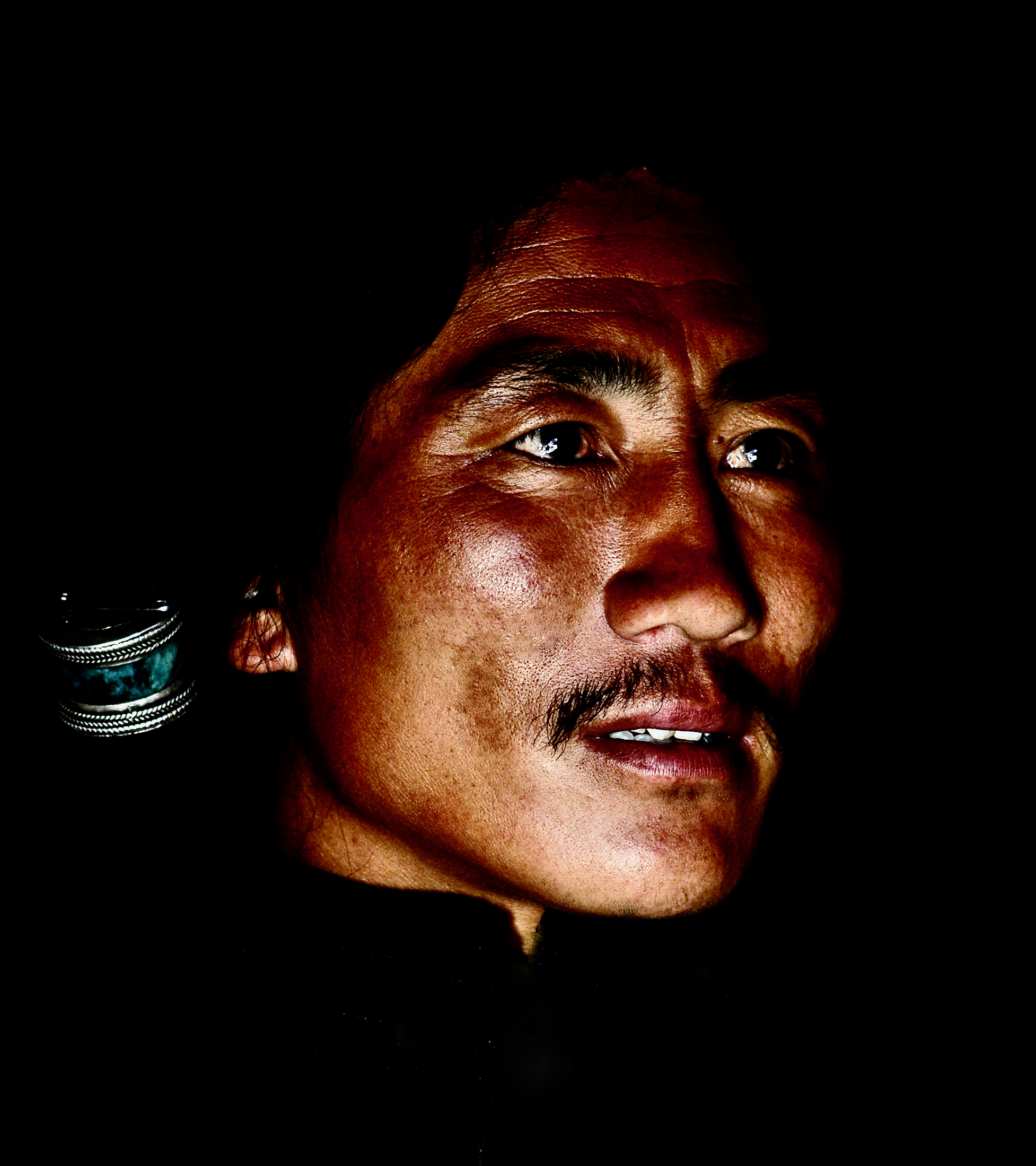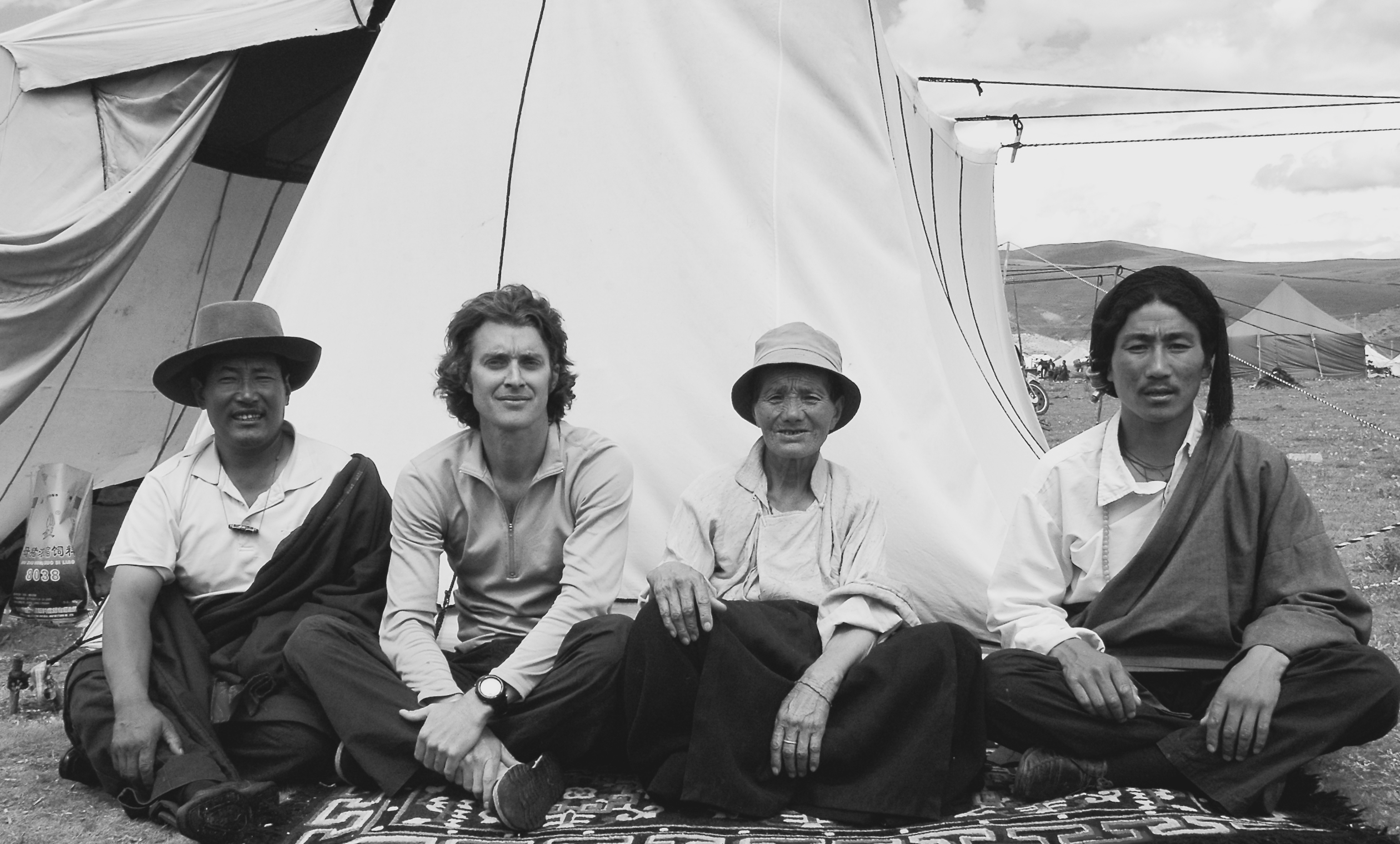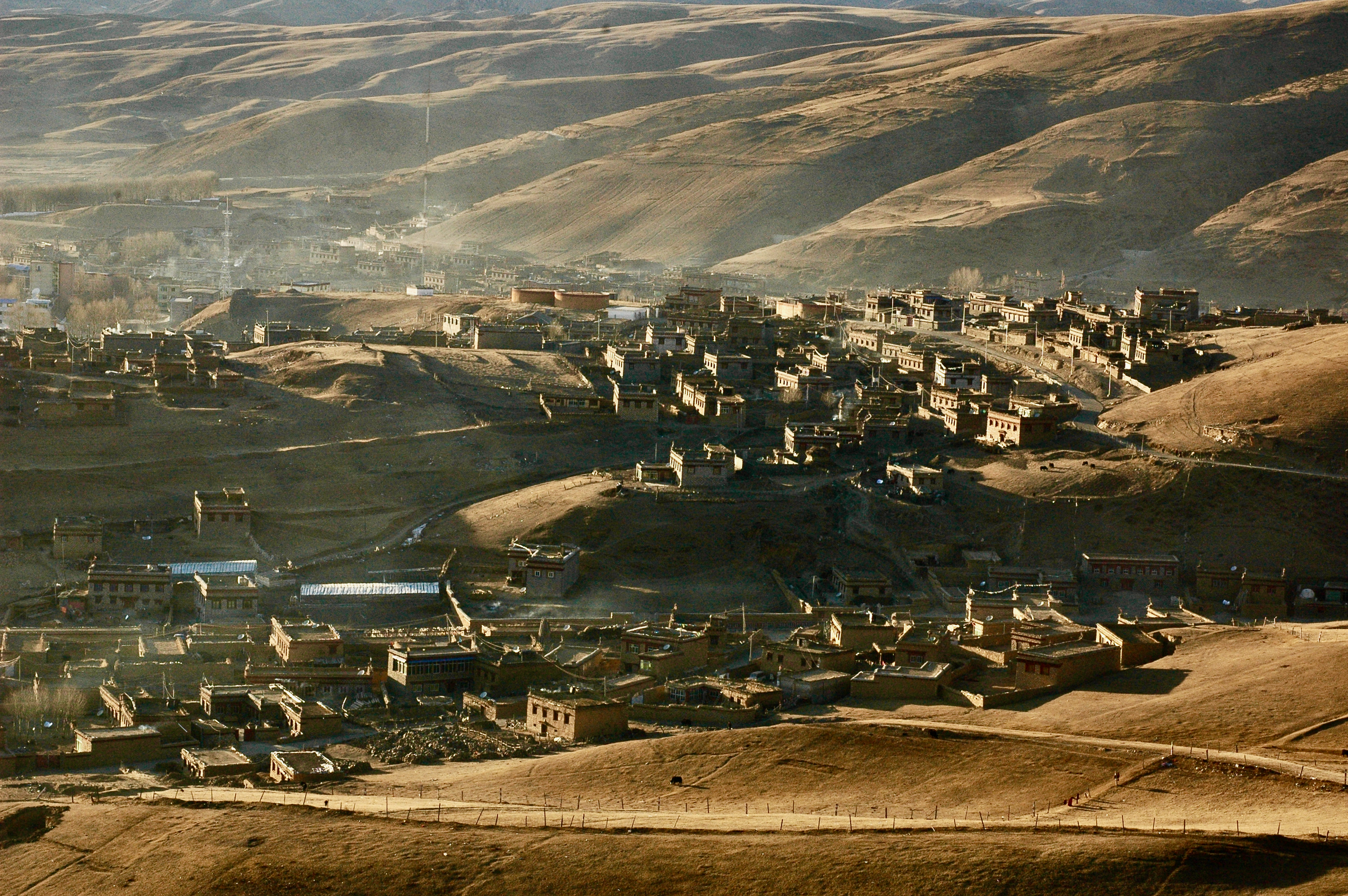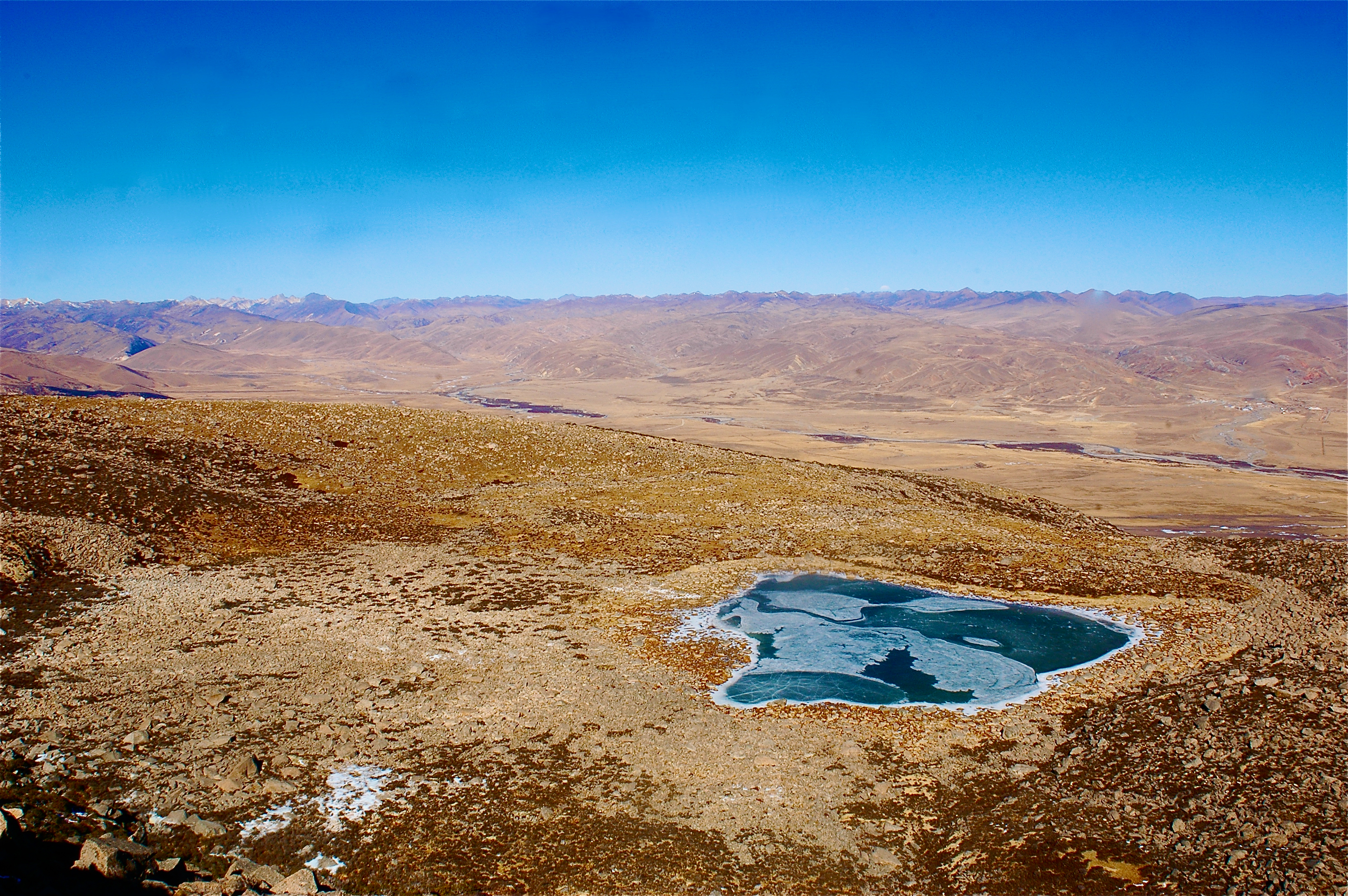One of the most purpose-driven of walkers, Tseba, would prepare a kettle of butter tea every morning before leaving to circumambulate around Litang’s Chode monastery. No less than three rotations would ever be done and afternoons would often see Tseba back out with his mala beads in hand doing another three rounds. Not rain, hail, blasting sun, nor heaps of snow would ever prevent Tseba from his ritual rotations (nor his pre-ritual taking of tea) in this town of over 4,000 metres.

A contented Tseba post circumambulation and post butter tea
Litang was, for over a decade, one of the zones that I would inevitably find myself navigating to, and remaining in. A community of friends, relentless mountain forces, and a vital conduit point along the Sichuan-Tibet portion of the Tea Horse Road kept me wanting more and more time there. To arrive, whether by foot or vehicle, was always an entire body feel as the altitude began to tighten its grip on the body.
A heightening of all senses was influenced by a particular type of air current and temperature drop, as though this set of elements were prerequisites to acknowledge where one was arriving to.

Some of my favourite people at the Litang Horse Festival, including Tseba at the far right
Tseba embodied much of what made the area compelling and unambiguous, and his butter tea offerings were no different. They were powerful, rich, stimulant liquids, that were as much a meal as they were anything else. Barley, salt, yak butter, desiccated tea leaves from Sichuan gardens leagues away, and even at times the addition of dried yak yoghurt balls, called chura could all, depending on his mood or the availability of these items, be found within a bowl.

Litang
Proudly Khampa, he remembered the region’s contributions to the Ancient Tea Horse Road. Caravans would pass through these vast nomadic spaces in western Sichuan, sometimes needing the assistance of ’traveling protection’ – nomads payed to accompany and protect both caravans and their participants from attack and thieves.
Many a time, we’d share a butter tea before heading out where I’d do a version of a scurry to keep up with Tseba as it has been years since I’ve been in his spaces.

Some of the bold landscapes of the Litang area, which mirrors some of its butter tea offerings
He often said that both his preferred teas and people had the same qualities: direct and having an impact. Whether he knew it or not, he perfectly personified both of those qualities…and I hope he does still.

About JeffFuchs
Bio
Having lived for most of the past decade in Asia, Fuchs’ work has centered on indigenous mountain cultures, oral histories with an obsessive interest in tea. His photos and stories have appeared on three continents in award-winning publications Kyoto Journal, TRVL, and Outpost Magazine, as well as The Spanish Expedition Society, The Earth, Silkroad Foundation, The China Post Newspaper, The Toronto Star, The South China Morning Post and Traveler amongst others. Various pieces of his work are part of private collections in Europe, North America and Asia and he serves as the Asian Editor at Large for Canada’s award-winning Outpost magazine.
Fuchs is the Wild China Explorer of the Year for 2011 for sustainable exploration of the Himalayan Trade Routes. He recently completed a month long expedition a previously undocumented ancient nomadic salt route at 4,000 metres becoming the first westerner to travel the Tsa’lam ‘salt road’ through Qinghai.
Fuchs has written on indigenous perspectives for UNESCO, and has having consulted for National Geographic. Fuchs is a member of the fabled Explorers Club, which supports sustainable exploration and research.
Jeff has worked with schools and universities, giving talks on both the importance of oral traditions, tea and mountain cultures. He has spoken to the prestigious Spanish Geographic Society in Madrid on culture and trade through the Himalayas and his sold out talk at the Museum of Nature in Canada focused on the enduring importance of oral narratives and the Himalayan trade routes.
His recently released book ‘The Ancient Tea Horse Road’ (Penguin-Viking Publishers) details his 8-month groundbreaking journey traveling and chronicling one of the world’s great trade routes, The Tea Horse Road. Fuchs is the first westerner to have completed the entire route stretching almost six thousand kilometers through the Himalayas a dozen cultures.
He makes his home in ‘Shangrila’, northwestern Yunnan upon the eastern extension of the Himalayan range where tea and mountains abound; and where he leads expeditions the award winning ‘Tea Horse Road Journey’ with Wild China along portions of the Ancient Tea Horse Road.
To keep fueled up for life Fuchs co-founded JalamTeas which keeps him deep in the green while high in the hills.




